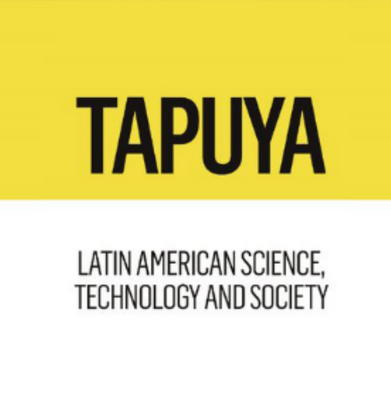The Globalization of Wheat

In his review of “The Globalization of Wheat” by Marci Baranksi, Felipe Trujillo Bilbao critically examines the Green Revolution’s impact on wheat breeding and agricultural development. Baranksi challenges the prevailing narrative of technological triumph, highlighting how wide adaptation marginalized smallholder farmers. This book offers a nuanced history of technology, emphasizing the need for inclusive agricultural practices. Trujillo Bilbao underscores Baranksi’s call to reassess past technologies, urging scientists, policymakers, and citizens to critically examine their societal impacts. The review illuminates a pivotal shift in understanding the complexities of agricultural innovation and development.
Routledge Handbook of the Digital Environmental Humanities

In his review of the “Routledge Handbook of the Digital Environmental Humanities,” Alejandro Ponce de León-Calero examines the transformative potential of digital tools in reshaping environmental narratives. He explores how these technologies foster interdisciplinary engagements and address urgent socio-ecological challenges. Through a comprehensive analysis of the handbook’s contributions, he emphasizes the importance of methodological innovation in the Environmental Humanities, encouraging new ways of understanding and engaging with our environment.
Technology of the oppressed: inequity and the digital mundane in favelas of Brazil

The book review by Manuela Rocha and Joabi Santos examines David Nemer’s Technology of the Oppressed: Inequity and the Digital Mundane in Favelas of Brazil. Nemer conducts an ethnographic study, analyzing how favela residents utilize everyday technologies, spaces, and processes to alleviate oppression in their lives. Applying the concept of Mundane Technologies, he explores acts of repair, spaces like Community Technology Centers (CTCs) and Lan Houses, and the significance of social media in favelas. Drawing from Paulo Freire’s concepts, Nemer portrays these adaptations as acts of hope for liberation. However, while discussing the transformative potential of technology, the reviewers emphasize the book failure to critically analyze the deep-rooted structural inequalities of race, class, and gender in society.
Inscriptions of Nature: Geology and the Naturalization of Antiquity

Inscriptions of Nature: Geology and the Naturalization of Antiquity, two authors independently analyze Pratik Chakrabati’s thesis that history became naturalized through geology in colonial India, as “deep time” emerged within the violent frameworks of European resource extractivism. The proposition of a “past unlimited” for studying imperial India outside the strict (secular) epistemological norms of the “modern” sciences can be productive (Maria Paz Almenara) or confounding.
Knowers of the Unseen: disputes over sufi knowledge and practice

Bárbara Burton brings into focus the methodological challenges recognized by the author’s study of sufi knowledge in central Africa in the 19th century, which also become entry points for engagement with the book. Among these are the nature of the sources, which refer to a sphere of human activity that is impossible to grasp only through written documents, and the author’s respect for native characterizations of Kunta sufi knowledge and practice as sciences of the Unseen (in opposition to sorcery or magic). Burton invites us to reconsider the interpretation of the dismissal of sufi knowledge because of a miscomprehension of native terms, and approach it instead as an intentional definition of the ideological weapon of colonialism.
STEVIA: CONOCIMIENTO, PROPIEDAD INTELECTUAL Y ACUMULACIÓN DE CAPITAL

The first intervention is to piece together the complex history of Stevia, the second is to argue that the appropriation of knowledge is a key engine of capitalist value production, and a third significant move in Stevia is to enjoin critical Latin American STS and history of science scholars to attend to reconsider the status given to “scientific excellence” in the history of Latin American science.
CONOCIMIENTOS, SOCIEDADES Y TECNOLOGÍAS EN AMÉRICA LATINA: VIEJOS MODELOS Y DESENCANTOS, NUEVOS HORIZONTES Y DESAFÍOS

1. The discussions raised (pre-pandemic) are sensitive to current (post-pandemic) issues, and in dialogue with the entire global production of knowledge. 2. The book is a catalog of problems and clues for further research in Latin American STS (and beyond). 3. The book is also a roadmap, as the issues traversing the texts trace lines of interpretation that make explicit where we are standing, but also show us the places we can go from here.
